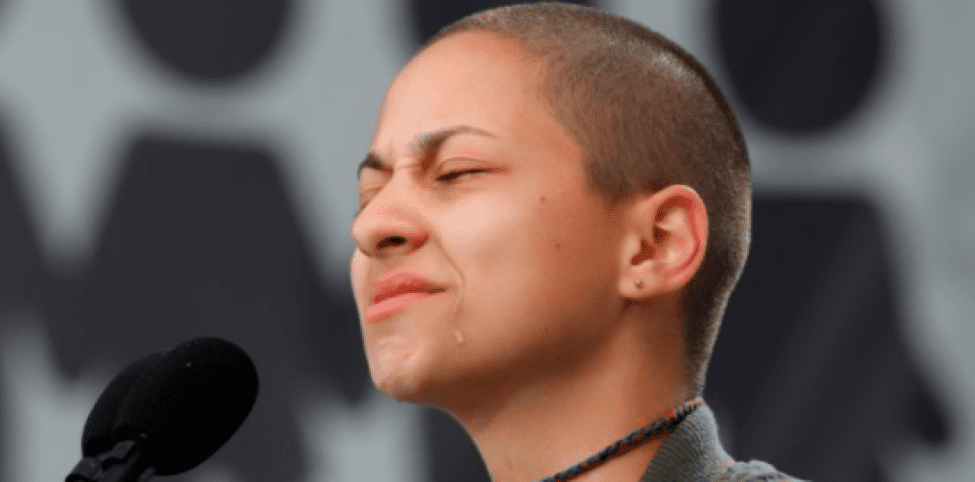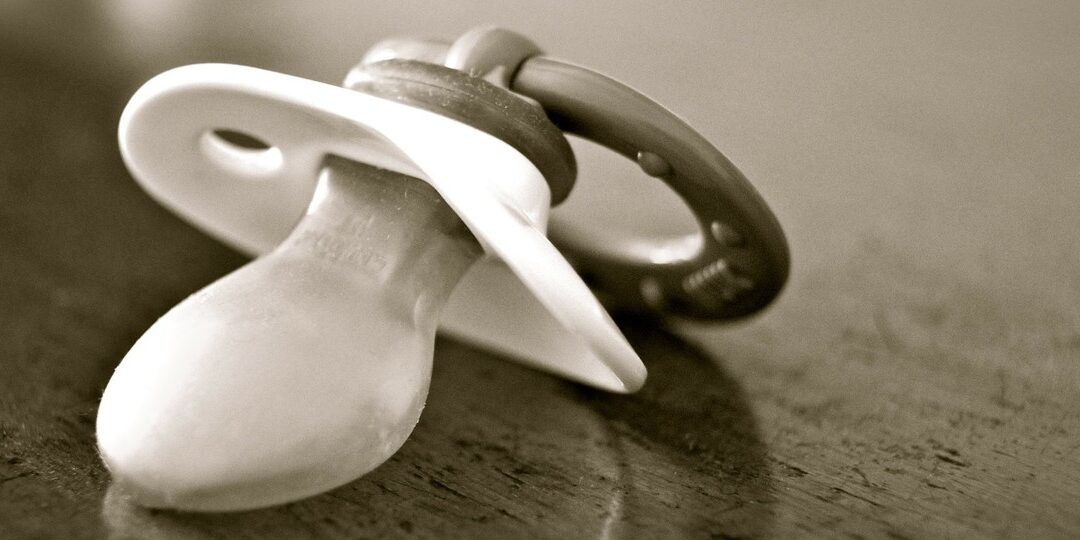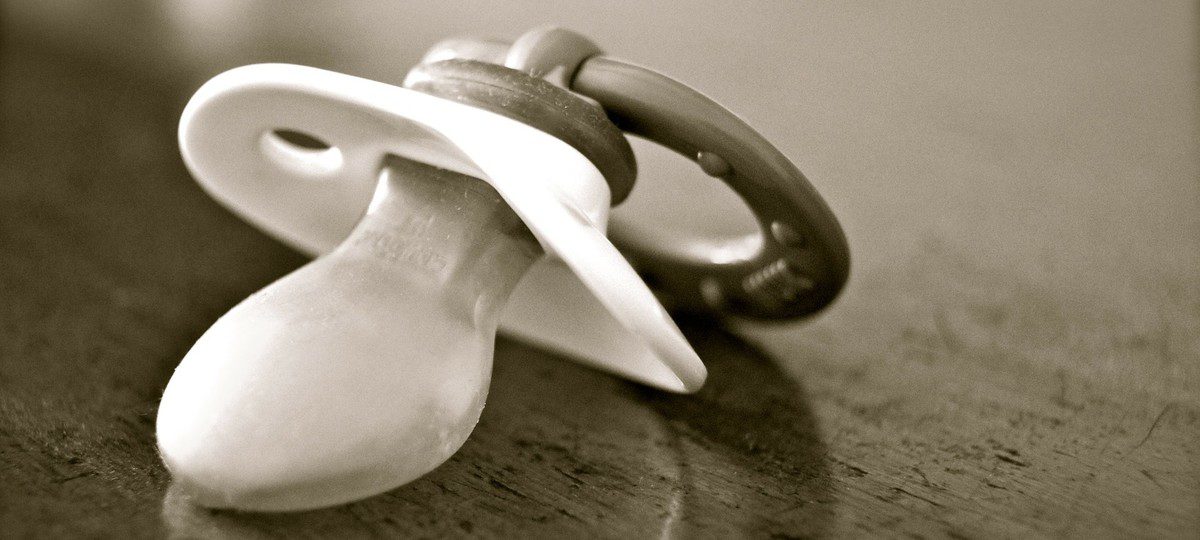by admin | Mar 26, 2018 | Blog

Photo Credit: Jonathan Ernst/Reuters
I’ve been watching the Parkland survivor advocates feeling simultaneously in awe of their courage and fearful for their futures. I am absolutely astonished at their strength, power and passion. They have been able to achieve what many exceptionally accomplished adults have not. They have advanced the discussion on gun control, and they deserve our never-ending gratitude. Yes, we owe them for what they are trying to do for our children and country. But we also owe them for the potential damage they are unknowingly inflicting upon themselves.
Emma González, the face of the movement, is barely a day into adulthood. She believes she can change the world, and she’s certainly putting in her effort. But at 18, she doesn’t know about the pain of banging your head against the wall trying to help people understand why they should collectively care. She doesn’t know that she just lost her last bit of privacy, and that her life will never go as she originally planned. She doesn’t know how PTSD may affect her in the future or even what the effects will be of having lived through a mass shooting and watching friends die. She hasn’t had a second of time to grieve. As a social worker and parent I can’t help but worry about what the recent fame and opportunity is costing her and her friends.
In an essay for Harper’s Bazaar, González laments: “I’m 18 years old, Cuban and bisexual. I’m so indecisive that I can’t pick a favorite color, and I’m allergic to 12 things. I draw, paint, crochet, sew, embroider–anything productive I can do with my hands while watching Netflix. But none of this matters anymore.” Right now her life is all about gun control. At the same time, she is still developing her identity of who she is and who she wants to be. She still naively thinks everything will return to normal as soon as the adults wake up and change the laws. She writes, “We want to fix this problem so it doesn’t occur again, but mostly we want people to forget about us once this is over. We want to go back to our lives and live them to the fullest in respect for the dead”
An icon at 18, González has a verified Twitter account followed by 1.4 million. Emma and her friends don’t know what twitter trolls can do. Unfortunately, they are getting a crash course. Just yesterday a doctored animated video made the rounds on social media. It featured González ripping up a copy of the constitution. The name calling can be venomous by the anonymous. However, loads of people have no problem attaching their names to vicious hate speech. Take Leslie Gibson, former candidate for the Maine house and a man who called González a “skinhead lesbian” on Twitter. That’s one of the nicer comments I read.
Being an advocate and activist has a price, and Emma González and the other young people fronting this movement will pay it for us. It may take years but the price will come. I worry about anxiety and depression. I worry about PTSD and suicidal ideation. I worry about social isolation and credible threats to their safety. I worry about the toll of prolonged anger without outlets and something positive to balance it. These worries aren’t hyperbole or dramatic exaggeration. It’s the sad reality of being a nationally-recognized activist.
A recent article in the New York Times chronicled the pain and suffering of young people who were suddenly thrown into the activist rolls. Due to various causes, five people from the Black Lives Matter movement have died in just the last two years. The kids from Parkland are already receiving death threats. González reported on 60 Minutes that she fears bombs being thrown through their office windows. This weight would be extremely difficult for an adult to handle, let alone adolescents. There is a lot of sacrifice and suffering that accompanies anyone shouting for change in the public eye. But the effects are more intense when the advocates are still coming of age.
It remains unclear how the #NeverAgain movement will affect Emma González and her peers from Parkland. They are doing a service for their country, and they should be recognized as such. I just hope the price tag for their effort isn’t irreparable damage.
by admin | Mar 24, 2018 | Dear Family Coach
Snooping Mistakes and a Pesky Pacifier for 03/24/2018
Dear Family Coach
Dear Family Coach: My 16-year-old daughter tells us nothing about her life. So when she goes to bed, I sometimes browse through her cellphone. At first I just noticed typical teenage girl gossip. But then I read about a boy she likes and is trying to attract by wearing tight clothing and sending him racy Snapchats. How can I address this with her without telling her that I’ve been on her phone? – Snooper
Dear Snooper: Stop snooping right now. Your daughter chooses not to share her life with you. It would be helpful to figure out why. Is she just private, or is she worried about the potential lectures she will get if she tells you anything? Either way, I can guarantee she will be even less likely to share her life details once she finds out you’ve been snooping. Furthermore, once you read or see something upsetting, you can’t unknow it. That’s the danger. You don’t know what you will find, or even how to handle it.
Updated: Sat Mar 24, 2018
Snooping Mistakes and a Pesky Pacifier for 03/24/2018
by admin | Mar 24, 2018 | Dear Family Coach
Snooping Mistakes and a Pesky Pacifier for 03/24/2018
Dear Family Coach
Dear Family Coach: My 16-year-old daughter tells us nothing about her life. So when she goes to bed, I sometimes browse through her cellphone. At first I just noticed typical teenage girl gossip. But then I read about a boy she likes and is trying to attract by wearing tight clothing and sending him racy Snapchats. How can I address this with her without telling her that I’ve been on her phone? – Snooper
Dear Snooper: Stop snooping right now. Your daughter chooses not to share her life with you. It would be helpful to figure out why. Is she just private, or is she worried about the potential lectures she will get if she tells you anything? Either way, I can guarantee she will be even less likely to share her life details once she finds out you’ve been snooping. Furthermore, once you read or see something upsetting, you can’t unknow it. That’s the danger. You don’t know what you will find, or even how to handle it.
Updated: Sat Mar 24, 2018
Snooping Mistakes and a Pesky Pacifier for 03/24/2018

by admin | Mar 24, 2018 | Dear Family Coach
Snooping Mistakes and a Pesky Pacifier
Dear Family Coach


Dear Family Coach: My 16-year-old daughter tells us nothing about her life. So when she goes to bed, I sometimes browse through her cellphone. At first I just noticed typical teenage girl gossip. But then I read about a boy she likes and is trying to attract by wearing tight clothing and sending him racy Snapchats. How can I address this with her without telling her that I’ve been on her phone? — Snooper
Dear Snooper: Stop snooping right now. Your daughter chooses not to share her life with you. It would be helpful to figure out why. Is she just private, or is she worried about the potential lectures she will get if she tells you anything? Either way, I can guarantee she will be even less likely to share her life details once she finds out you’ve been snooping. Furthermore, once you read or see something upsetting, you can’t unknow it. That’s the danger. You don’t know what you will find, or even how to handle it.
Whenever I tell parents to quit reading texts and private correspondence between young people, they inevitably tell me they have no choice. Sometimes they fear drugs or sex or some other ill. Other times they are just desperate for some type of connection to their distant teenager. But these actions only erode trust even further.
Instead of eavesdropping, parents should just talk to their kids about their concerns. So if you are worried about drugs and sex promiscuity, then talk to your kid about those issues regardless of whether or not you read about it on the cellphone. Use stories from the news to help bring up an issue in a timely manner. If your child is closed off and hard to reach, then slow down, and try to find something your teen enjoys and do it with her. Bottom line: Reach out to your daughter honestly and genuinely, without being a snooper.
Dear Family Coach: Our daughter loves her pacifier. We tried to get rid of it when she was 2 years old, but she threw such violent tantrums that we gave it back. Now she’s 3 1/2 and totally dependent on the pacifier when she’s upset during the day and to sleep at night. We know we have to pull it, but how can we do it with the least amount of pain (for her and us)? — Panicked Parents
Dear Parents: You have good reason to panic. Your daughter adores her little binky. It gives her comfort. It helps her sleep and keeps her calm when she is having a hard time. Plus, you’ve already tried and failed to take it away, so you know she will put up quite a fight.
But don’t dip too far into the pit of despair. This issue can be conquered with some tenacity and consistency. Pick a date on the calendar that will be known as bye-bye binky day. Let your daughter know three days before. On the morning of the designated day, get the pacifiers out of the house. Cut them up; dump garbage on them; or mail them away. Just get rid of them so there is no danger of giving them back if you get weak. Your daughter will tantrum up a storm, since she knows that this behavior worked like a charm to get her beloved binky back last time. Be prepared and ready for it. To ease her pain, consider buying a new stuffed animal, blanket or nightlight to help her transition.
Dr. Catherine Pearlman is the author of “Ignore It! How Selectively Looking the Other Way Can Decrease Behavioral Problems and Increase Parenting Satisfaction.” To write to Dr. Pearlman, send her an email at questions@thefamilycoach.com. To find out more about Dr. Catherine Pearlman and read features by other Creators Syndicate writers and cartoonists, visit the Creators Syndicate website at www.creators.com.
Snooping Mistakes and a Pesky Pacifier
by admin | Mar 24, 2018 | Dear Family Coach
Snooping Mistakes and a Pesky Pacifier for 03/24/2018
Dear Family Coach
Dear Family Coach: My 16-year-old daughter tells us nothing about her life. So when she goes to bed, I sometimes browse through her cellphone. At first I just noticed typical teenage girl gossip. But then I read about a boy she likes and is trying to attract by wearing tight clothing and sending him racy Snapchats. How can I address this with her without telling her that I’ve been on her phone? – Snooper
Dear Snooper: Stop snooping right now. Your daughter chooses not to share her life with you. It would be helpful to figure out why. Is she just private, or is she worried about the potential lectures she will get if she tells you anything? Either way, I can guarantee she will be even less likely to share her life details once she finds out you’ve been snooping. Furthermore, once you read or see something upsetting, you can’t unknow it. That’s the danger. You don’t know what you will find, or even how to handle it.
Updated: Sat Mar 24, 2018
Snooping Mistakes and a Pesky Pacifier for 03/24/2018




